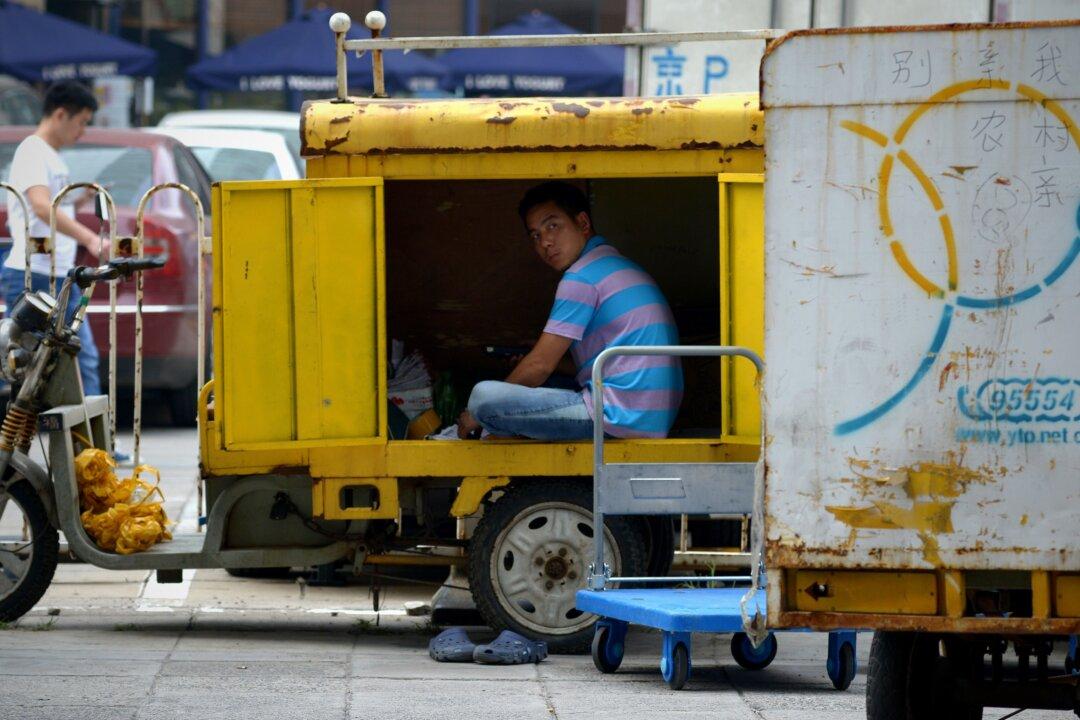Foreign direct investment (FDI) into China in July was down 17 percent year-on-year, the lowest monthly figure in two years. Observers say China’s political and economic environment caused foreign investors to lose confidence. In particular, the recent anti-monopoly probe into foreign companies could be the main cause.
At a news briefing on Aug. 18, China’s Ministry of Commerce announced the latest FDI figures. FDI stood at $7.8 billion in July, a 17 percent drop, and its lowest level since July 2012. Compared with June of this year, the drop was 45.9 percent.
Wu Qing, a researcher at the Institute of Finance of China’s State Council Development Research Center told NTD that China’s investment space is getting smaller, and the RMB appreciation trend has ceased, and these are likely the main causes for the drop in FDI.
Mr. Deng, a China-based economist, told NTD that he sees two causes for the drop: political and economic risks. “Chinese people are good at [adjusting to] change, to divert risk and scatter it,” he said. “Hot money consistently flows into China, thus the true situation is also consistently covered up; many problems have been covered up,” Deng added.
Antitrust Probes
Observers speculate that the recent antitrust probes into foreign companies have scared foreign investors away.
Over the past few months, China launched an anti-monopoly investigation, which probes foreign companies including Microsoft Corp., Qualcomm Inc., Audi AG, Daimler AG, and Chrysler.
The European Chamber of Commerce in China said that amongst companies under investigation, some Chinese companies have put similar practices in place that violate the country’s law, yet they haven’t been investigated. In some cases, Chinese regulators requested foreign companies not to question the investigation, not to attend hearings with lawyers, and not to ask for help from their native countries. The European Chamber of Commerce in China said these moves are forms of intimidation.
Jason Ma, a U.S. based China economics commentator told NTD: “Foreign firms are worried about China’s investment environment. In particular, they [Chinese authorities] used anti-monopoly as an excuse to give foreign companies a hard time, and certainly they have other motives. China printed a great amount of RMB, its economic growth has declined, its real estate business faces crisis, the RMB appreciation concept has gradually disappeared, thus the hot money flowing into China decreases.”
Chinese economist, Mr. Deng said the anti-monopoly charge is just a tactic, a method used by the government to intervene. While it helps to do something positive for the Chinese economy, it also diverts the focus away from domestic crisis.
In April, when the Chinese public’s focus was on the corruption investigation of Gu Junshan, a former deputy logistics chief in the army, German drug maker GSK and other foreign firms faced a corruption investigation in China.
Then an anti-monopoly investigation into foreign firms was undertaken while the cases of Xu Caihou, deputy chairman of the military committee, and Zhou Yongkang, the former head of the Political and Legislative Affairs Committee, were about to be announced.
Foreign Business Flight
A number of foreign firms have already left China in recent years, Google, Yahoo, Best Buy, and Media Markt. The U.S. cosmetics producer Revlon has announced its withdrawal from China and laid off 1,100 workers. In January, French cosmetics company L'Oreal decided to pull its Garnier products from China.
Foreign companies remaining in China are struggling. IBM said their profits have dropped 23 percent in the last quarter of 2013. French alcoholics beverage group Remy Cointreau said that in the first three quarters of last year Remy Martin sales dropped over 30 percent.
Xinhua News Agency reported that five years ago, when U.S. businessmen faced the question of where to set up a company, nine out of 10 CEOs would choose China. If faced with the same question now, as many as five CEOs would choose America. In the last 10 years, about 200 American companies have moved their factories back home, the report said.





